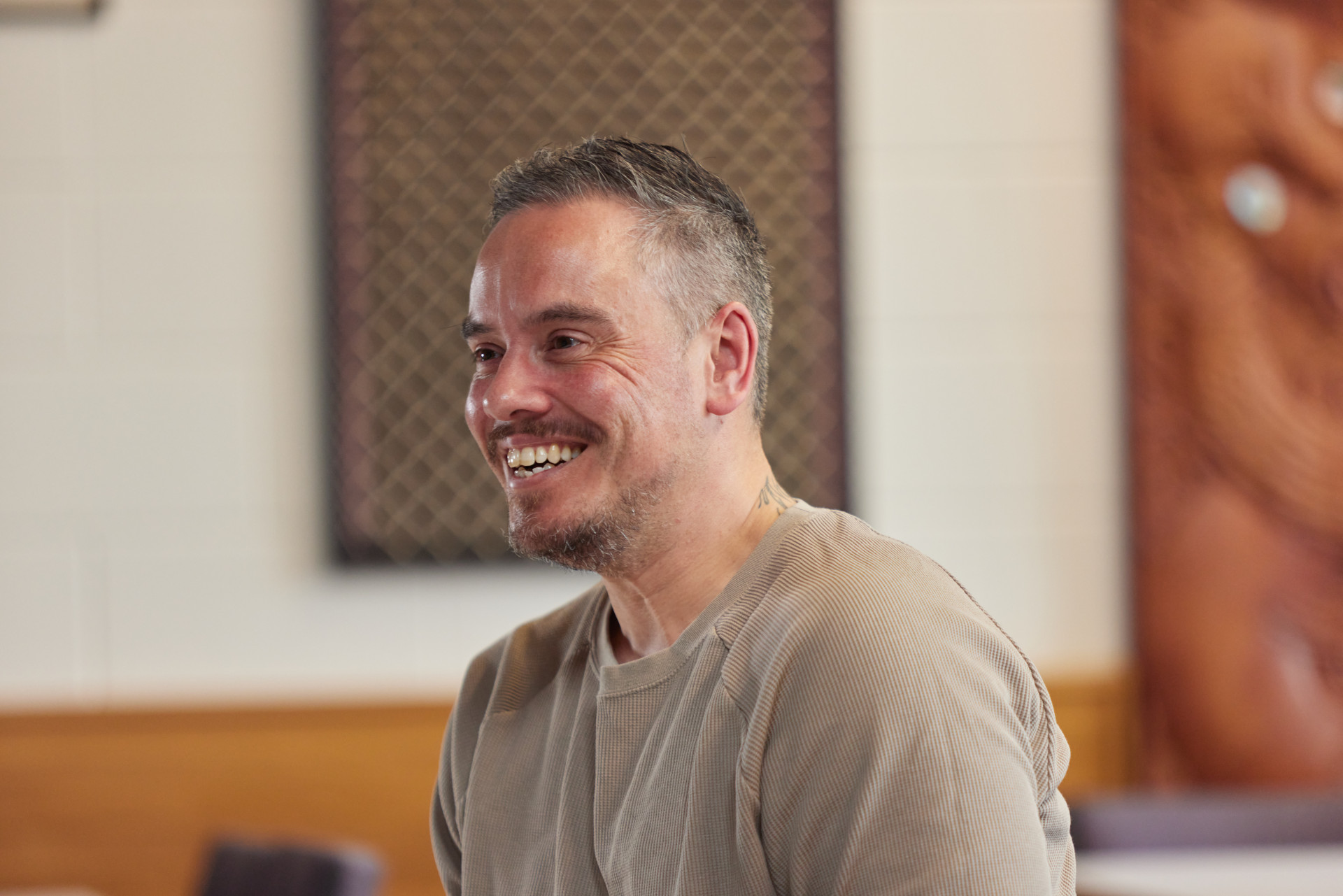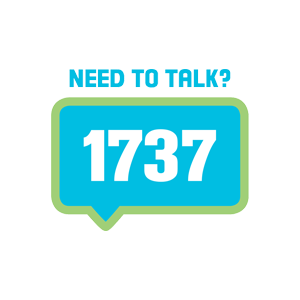Phil Borell was born in Christchurch and raised by his mother. At 18 months old, Phil’s father left and the next time he saw him, he was 10 years old and it was at his fathers tangihanga.
Today, Phil is a stepfather to Arama, father to Werahiko-Paul and husband to Steph. He’s an avid league fan, lecturer at Canterbury University, researcher of masculinity, sport coach and mate to many. In this story, we explore how Phil has learned to father two boys without a role-model of his own.
Tell us about your upbringing
I was raised by my Mum here in Christchurch. We lived in a statehouse and didn’t have much money. Still, I had an awesome childhood there. I remember playing cricket in the street, 50c scoops of chips and mucking around with mates.
The man who was my biological father left when I was 18 months old. I never saw him again until I was 10, and he was in a casket. The first time I remember seeing his face, touching him, kissing him – he was cold. That was it for our relationship.
When I was five, I got a card from him for my birthday. I always cherished that milestone. About three years ago, my Mum passed away and I found that card again. It’s funny, because I realised as an adult, that it was her handwriting all along, not his. My Mum tried to protect me from the man she knew. She filled the mother and father role for me. I know now, she did an amazing job. But I didn’t always see it growing up.
How has navigating a world without a father influenced you?
I’ll be honest, its f***ed me up. I was a pretty good kid until I was 10 but when he passed away, my personality started to change. I stopped playing piano, being outgoing and started to withdraw from the world. I struggled with feelings of abandonment.
Even though he was never there, I thought I had to step up and be the man of the house. I started making the rules, playing up and getting into trouble. I was an a**hole. Mum wore the brunt of my anger and grief. She was the first person there when I needed her, and the first person that I’d push away. I regret the way I treated her, and I made the mistake of thinking that she was going to be around forever – and she wasn’t.
Where have you learned to be a father?
When I look at who I am as a father, I model myself on Mum. When I look at who she was, how special she was, I realise I’ve been shaped a lot by her teachings. My Mum taught me how to be nurturing and caring. My wife and I joke that the boys have two Mums because I’m always emotional and nurturing to our boys.
I look to other dads too. My friends, their fathers and men around me. I learn a lot from others and just by making my own mistakes. My mindset is to always do better in my role as a Dad. That means accepting my mistakes and committing to doing better the next time around.
What has your fatherhood journey been like to date?
It started with Arama and back then I wasn’t perfect. I didn’t always get it right and in hindsight there are things I would change. I was still learning. For example, realising that my wife had to prioritise Arama, not me, was a real learning curve. Or, reading a bedtime story at 7pm instead of having a beer. All of this helped our relationship though.
With Arama, I focused on being a bro. I’d teach him about fishing, when to put a fish back, league and just hung out with him. He calls me Phil but every now and again I hear him refer to me as Dad with his mates, so there’s that.
For Werahiko-Paul, it’s a bit different. He’s just started daycare. It’s funny because the first thing I do at pick up is rip my mask off and give him kisses. The kaiako (teachers) laugh at me because none of the other dads do it. I’m just an emotional dude!
I am in no way perfect as a father or husband. But I’m aware of that. If I make a mistake, I choose not to do it again or try to minimize the impacts my choices have on others. It’s a constant learning journey.
What is the most important role of a father?
Being present. It doesn’t cost anything; you don’t need any special skills. You just have to be there for them as best you can.
With Arama, the last thing we say before we go to sleep is, “I love you bro, always.” The last word we say every night and when I drop him to school is ‘always’ because it’s forever. For me, if anything ever changed in my relationship with Steph, I’d never abandon these boys. My upbringing taught me what I don’t want to be. Being present is the most important thing in the world.
What advice do you have for other fathers who were raised fatherless?
I think if you can do better than what you had, you’re doing great. If you can overcome something, that’s awesome. It’s a journey of constantly trying to improve and upskill. It doesn’t stop. Also, just accepting that you’ll get it wrong.

